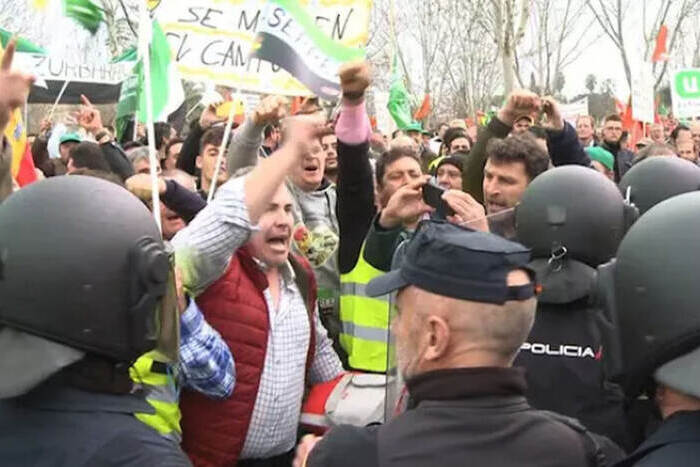Spain: New Government facing uncertainties of the agro food sector
Luis Planas, once again Minister of Agriculture, Fisheries and Food for this new term, will have to face a sector demanding solutions in a changing international scenario –Brexit, CAP and tariffs- and complex at a national level, with farmers’ demonstrations which have already started.

Planas has a complex task in the crosscutting area, because water, rural development, animal welfare, digitalization, gender and equality, and forestry policies are now shared competences among different ministries of the recently appointed government. As an example of the responsibilities dispersion, the new vice-precedency for Ecological Transition is also for the Demographic Challenge or the creation of a new ministry exclusively for consumer’s matters.
As for the Brexit, the logistical, customs, tariff and commercial consequences have yet to be handled.
In the case of US tariffs on EU products, the challenge will not only be to regain competitiveness in the market or finding new destinations for Spanish exports affected by the duties. The challenge will also be to manage export policies considering the Trump Government’s decision-making volatility.
CAP negotiations
In addition, negotiations are under way in Brussels on the next CAP program, which will place greater environmental demands on farmers and whose budget will be affected by the income cut resulting from Brexit.
The Minister’s task is also complicated at a national level, with a new government starting its term focused on depopulation and the effects of climate change, topics in which agricultural activity has a key role to play.
There is also a difficulty in reconciling the different interests of the regions with regard to water and water transfers, fish catches or the Strategic Plan for the CAP implementation, among others.
Announced demonstrations
The situation at the sectoral level will be even more complex, as most of the farmers’ associations have already warned that there will be demonstrations in 2020 because of low prices at farm gate and imbalances in the food value chain. They say, “farmers are paying for international trade conflicts through no fault of their own”.
The sector also insists on the need to attract young people to farms and promote greater visibility for women, as well as to defend the sector’s role in the economy and social preservation of the rural world.
Farmers call for more specific measures to prevent sales at a loss, market measures to address the farms profitability and support for the EU model production.
Agriculture, the most affected sector by the rise of the minimum wage
Yesterday, fifteen people injured and one arrested during a demonstration of about 10,000 farmers in Extremadura. Taking advantage that Minister Planas was opening an agricultural fair in Badajoz, regional farmers’ organizations gathered asking for fairer prices for their products.
The trigger for yesterday’s demonstration was the latest unemployment figures, particularly negative for the agricultural sector in Extremadura, a region with the highest unemployment rate in Spain and a very important farming sector. Farmers’ spokespersons say that the situation will be worsen by the new increase in the minimum wage, just approved by the government. They claim that, with farms at the limit of profitability, the last two increases in the minimum wage will affect the recruitment for workers; 44% of farm workers in Spain receive the minimum wage, compared to 11% in the services sector, 5% in construction and 4% in the industry.
Source: EfeAgro.com & La Razón